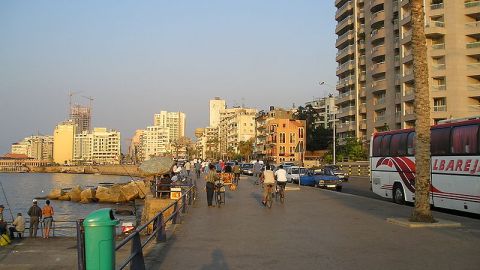Lebanon’s Problems Go Beyond Politics

Attention is finally being paid to Lebanon’s latent political crisis. The prime minister-designate, Saad Hariri, has sacked himself, according to the constitution, for failing to cobble together a power-sharing agreement of various ministries. Hariri blames the Hezbollah-led opposition for blocking his appointments, leading to the stalemate. So it goes with Lebanese politics: Nearly three months after elections, there is still no government in place, which is partly why nothing works in this country. When I asked a cab driver why there were no meters in taxis, he flashed me an angry look. “Meters? We don’t even have a prime minister, and you want meters?”
What bothers me most about Lebanon is not its political paralysis—which, given the sensitive makeup of the country and long history of ethnic rivalry, is partly to be expected. What bothers me more is an issue that keeps coming up here in the press: the country’s treatment of its migrant workers. Some 200,000 low-wage workers live in Lebanon, many from the Philippines, Syria, and parts of Africa. They are treated despicably. They are barred from even entering at least half of the country’s beach clubs. They toil under harsh work conditions. I recently had dinner with a well-to-do Lebanese family—nice people—but I was appalled by how rudely they treated their domestic help from Southeast Asia. As one local newspaper recently noted, “Under Lebanese labor laws [they are] considered more as servants than employees.”
There is even a pecking order, I’m told, of domestic help: Filipinos are most sought-after because they are considered the most servile, while Ethiopians, who are more assertive, are less desired. Of course, not all Lebanese people are racist and discriminate against migrant workers. But there is an undercurrent of racism within Lebanese society that most foreigners I speak to find gnawing. Beirut has done little to pass anti-discrimination laws or sign the 2003 UN Convention on the Protection of the Rights of All Migrant Workers.
Regardless of whether Lebanon forms a government in the coming weeks or not, little on this issue will change unless the outside world pressures Beirut to change its behavior and pass law outlawing discrimination. There is a lot to like about Lebanon—nice food, great scenery—which is why so many tourists are flocking here. But I still consider it the Kenny G of the Middle East: likeable but slightly cheesy (Why do so many Lebanese find it cool to drive fast and rev their engines, like a bad-80s movie?). I also can’t help wondering if the Lebanese façade of friendliness masks a darker racism toward foreigners. When I ask my friends here in the U.S. aid community about this subject, they just shrug their shoulders, as if to say, “Well, that’s Lebanon. What is to be done?”





